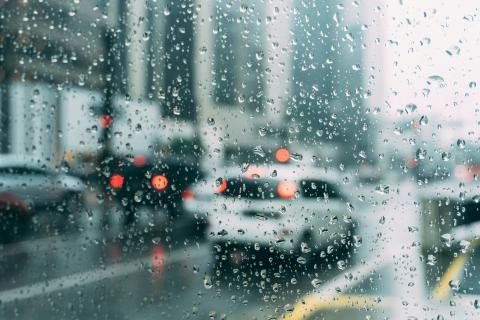How Weather Affects Student Mental Health and Well-being
Apr 15,2024
Weather patterns have a profound impact on our daily lives, influencing our mood, energy levels, and overall sense of well-being. For college students, who often navigate a complex web of academic pressures, social commitments, and personal challenges, the weather can play a significant role in shaping their mental health and emotional well-being. In this article, we delve into the ways in which weather affects student mental health and offer strategies to mitigate its impact.
The Sunshine Effect: The Mood-Boosting Power of Sunlight
Sunshine has long been associated with feelings of happiness, positivity, and well-being. Exposure to sunlight triggers the release of serotonin, a neurotransmitter that regulates mood, sleep, and appetite. During the winter months, when sunlight is scarce, many people experience a dip in serotonin levels, leading to feelings of fatigue, sadness, and even depression.
For college students, the winter blues can exacerbate existing stressors and make it more challenging to maintain a positive outlook. Seasonal Affective Disorder (SAD), a form of depression that occurs during specific seasons, is particularly common among college students living in regions with long, dark winters.
Rainy Days and Cloudy Skies: The Impact of Dreary Weather
While sunny days can lift our spirits and boost our mood, rainy or overcast weather often has the opposite effect. Dreary weather can lead to feelings of lethargy, sadness, and low energy levels, making it difficult to stay motivated and focused on academic tasks.
For college students, rainy days can be particularly challenging, especially when coupled with academic deadlines and social commitments. The lack of sunlight and outdoor activity opportunities can contribute to feelings of isolation and loneliness, exacerbating stress and anxiety.
Extreme Weather Events: Coping with Uncertainty and Disruption
Extreme weather events, such as hurricanes, floods, or snowstorms, can have a significant impact on student mental health and well-being. These events often disrupt normal routines, leading to feelings of uncertainty, anxiety, and stress. Students may face challenges related to transportation, housing, and access to essential services, further complicating their ability to cope with academic pressures.
In the aftermath of extreme weather events, colleges and universities play a crucial role in supporting students by providing access to mental health resources, counseling services, and emergency assistance. By prioritizing student safety and well-being, institutions can help mitigate the psychological impact of these disruptive events and facilitate a smoother transition back to normalcy.
Mitigating the Impact: Strategies for Weathering the Weather
While we may not be able to control the weather, we can take proactive steps to mitigate its impact on our mental health and well-being. Here are some strategies that college students can adopt to weather the weather more effectively:
-
Light Therapy: For students experiencing SAD or winter blues, light therapy can be an effective treatment option. Light therapy involves sitting in front of a light box that emits bright light, simulating natural sunlight and triggering the release of serotonin.
-
Stay Active: Regular physical activity has been shown to boost mood, reduce stress, and improve overall mental health. Even on rainy or cold days, students can engage in indoor workouts, yoga, or meditation to stay active and energized.
-
Connect with Others: Social connections are vital for mental health and well-being. Even when the weather is gloomy, students can stay connected with friends, family, and peers through virtual meet-ups, phone calls, or social media to combat feelings of isolation and loneliness.
-
Seek Support: If you're struggling with your mental health, don't hesitate to seek support from a counselor, therapist, or mental health professional. Many colleges and universities offer counseling services, support groups, and mental health resources to help students cope with stress, anxiety, and other mental health challenges.
While we cannot control the weather, we can control how we respond to it by adopting proactive strategies to mitigate its impact on our mental health.
By prioritizing self-care, staying active, connecting with others, and seeking support when needed, college students can weather the storms of life more effectively and maintain a positive outlook even when the skies are gray. As we navigate the ups and downs of academic life, let's remember that we are not alone in our journey and that support is always available to help us weather the weather of our minds.





